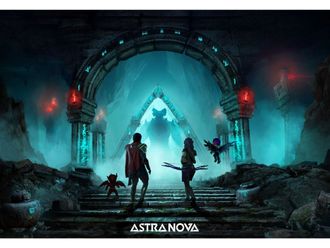
The Spartan Group becomes the first Indian online gaming company to enter the metaverse, leveraging cutting-edge technologies such as 3D reconstruction, virtual reality, and blockchain to provide customers with a more immersive experience. The ‘Spartan-verse’ is a virtual Hall of Fame, which will honor the legends in the Indian gaming industry. Spartan Group, a leading Indian gaming company, has already integrated NFTs, and Phygital rewards into their marketing and customer experience strategies.
Blockchains, web 3.0, cryptocurrencies, NFTs, and, more recently, Metaverse, are all considered the future of all social engagements and commerce on a global scale. Gaming, on the other hand, has long been a cornerstone of human entertainment. The Indian online gaming market has been expanding at an exponential rate for at least the last two years. Some of the most well-known Indian gaming enterprises, like the Spartan Group, have been at the forefront of efforts to bridge the gap between technological advancement and industry growth.
Spartan Group's Founder and CEO, Amin Rozani, shares his vision for the Indian online gaming industry and the adoption of important technologies such as NFTs, Blockchains, Web 3.0, and Metaverse in the sector's growth strategy.
"Virtual Reality (VR) has long been a strong contender in the gaming industry. Immersive games have always included features like the 2D/3D avatars, world-building, and virtual role-play, as a form of gaming experience. Gaming companies are actively attempting to establish a connected universe of virtual realities, and gaming has found a new home in the metaverse.”
The metaverse is a unified and interoperable virtual reality arena in which users can interact with each other and the digital world around them using enhanced human-computer interaction (HCI) gear and software, pushing VR gaming to new heights.’’
"As the technologies advance in web 3.0, AR, VR, and 3D reconstruction, Spartan-verse will also expand from currently hosting a Hall-of-Fame for one of India's largest gaming tournaments to one day soon hosting the entire tournament in the metaverse with an immersive virtual experience unlike anything experienced before.’’
Gaming on the metaverse could have the following characteristics:
Games-as-platforms – The gaming experience will become much more flexible. Users can add to the virtual world, create their own content, build sub-games within a game, and essentially treat the gaming environment as a platform-like space for other activities.
Social gaming – The metaverse is inherently social, a trait that sets it apart from the traditional solitary VR experience. Multi-player gaming will take on an additional dimension as players can invite friends from the real world, interact with other players, build relationships, etc.
Play to earn – This will be a crucial element of gaming in the metaverse. Apart from following linear storytelling and rules, players can engage in profitable activities. A simple example: they might be able to sell the assets they have won inside the game to other users for crypto, NFTs, etc.
Gaming firms like Spartan Group would soon be able to create entirely new virtual economies, Metanomics, wherein players could be rewarded with assets like NFTs and in-game cryptocurrencies that can be swapped, sold, or borrowed. Thanks to Twitter's recent adoption of NFT profile photos, people have begun to accumulate NFTs for social credit, status, and a sense of belonging that is found in a community of like-minded followers. By personalizing and adding functionality to virtual goods, NFTs allow users to obtain value in the metaverse.
Rozani added, “Metaverse is set to change the gaming arena for good, and Spartan-verse will be a platform that will provide space to promote, compete, earn, and stand strong together in the virtual future. The Spartan Group is gearing up to work towards shaping the future of the metaverse and making it safe and fun for all gaming enthusiasts while building an immersive virtual experience.”












